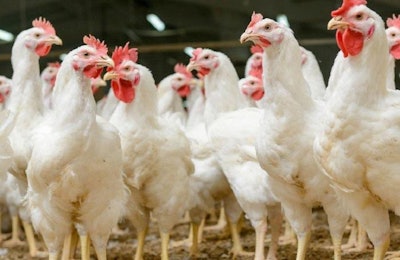
Those in the U.S. agriculture industry have reason to be concerned about President Donald Trump’s May 30 announcement that he intends to levy 5 percent tariffs on Mexican imports as a way to pressure Mexico to improve border security measures.
It comes at a time when efforts are being taken to finalize the United States-Mexico-Canada Agreement (USMCA), the trade agreement designed to replace the North American Free Trade Agreement (NAFTA).
While border issues have been largely partisan to date, not all members of Trump’s party appear to be on board with this idea.
Sen. Joni Ernst, R-Iowa, is a member of the Senate Committee for Agriculture, Nutrition and Forestry and she expressed worries about the tariff plan. While acknowledging that illegal immigration is a problem and that Mexico needs to step up its efforts, Ernst, in a statement, said the tariffs don’t seem to be the best maneuver.
“The livelihoods of Iowa farmers and producers are at stake. The USMCA would provide much-needed certainty to our agriculture community, at a time when they need it,” said Ernst. “If the president goes through with this, I’m afraid progress to get this trade agreement across the finish line will be stifled. While I support the need for comprehensive border security and a permanent fix to illegal immigration, this isn’t the right path forward. I’m asking the president to reconsider, and for Democrats to work with us to find a solution to the humanitarian crisis at our southern border.
According to Trump’s plan, the tariffs would be effective June 10 and would increase by another 5 percent each month until it hits 25 percent.
Possibility of retaliation
How Mexico responds to Trump’s planned tariffs could have substantial consequences to the agriculture sector, and particularly, the poultry industry.
Since Mexico is the largest importer of U.S. chicken and turkey, the poultry industry could be a target.
According to a report from Stephens, Mexico imported 651,178 metric tons of chicken in 2018. It also imported 173,544 metric tons of turkey from the United States, accounting for 63 percent of U.S. turkey exports and 6.6 percent of total U.S. production.
So how would this affect key poultry companies?
Sanderson Farms, the third largest broiler company in the United States, would stand to suffer. According to the Stephens report, Mexico accounted for 48 percent of Sanderson Farms’ export pounds and 51 percent of export sales dollars in 2018.
The report also stated that Tyson Foods, the largest broiler company in the United States, in 2017 disclosed that 10 percent of its international chicken sales – valued at $1.25 billion – are made to Mexico.
How important is Mexican trade to Butterball, the largest turkey company in the United States. It is important enough that U.S. Agriculture Secretary Sonny Perdue in February visited the company’s plant in Mount Olive, North Carolina, to tout the benefits of USMCA. At the time, Butterball estimated that 60 percent of its export sales are to Mexico, and of that, 70 percent of those products originate from the Mount Olive facility.
Those are pretty sobering statistics.
Regardless of how a person feels about the border situation, it seems like Ernst is right and those in the agriculture industry should not be played as pawns.


















